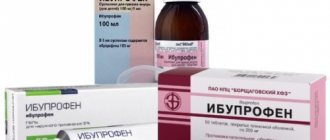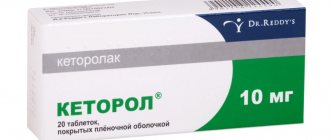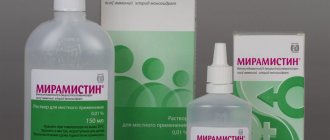Cough is the main symptom of a cold, as well as a manifestation of chronic lung diseases and metabolic pathologies. Pharmacologists offer a large selection of medications to treat this manifestation. Is it possible to use ACC while breastfeeding or is it better to use another remedy, we will consider below.
ACC is not recommended for use during breastfeeding; when using it, it is suggested to interrupt lactation.
Compound
The medication is intended for the preparation of a solution for further oral use. The drug is available in the form of effervescent tablets, which, when dissolved in liquid, produce carbon dioxide, which is why they are considered effervescent. The main active component is acetylcysteine.
There are several dosages of the drug with a concentration of the active substance in one tablet of 100, 200 and 600 milligrams. The medication also contains additional components.
Effervescent tablets are dispensed from pharmacies in aluminum tubes (twenty and twenty-five tablets) and contour packs (fifteen pieces).
Dosage
ACC powder or tablets are taken orally after meals. Dissolve the granules in a bag with water (1 bag per 200 ml of water). To dissolve the tablet, use 100 ml of water. The composition is prepared before administration.
The daily dosage for patients over 15 years old is 200 mg three times, for children from 7 to 14 years old – 200 mg twice, for patients from 2 to 6 years old – 100 mg twice.
To cure cystic fibrosis, adult patients weighing 30 kg and above need to take 800 mg of the drug, children from 7 years old - 600 mg, from 2 to 7 years old - 400 mg. The therapeutic course lasts from 5 days to 1 week.

ACC in the form of an injection solution is administered intramuscularly or intravenously. The daily dosage for adults is 300 mg twice, for patients from 7 to 15 years old – 150 mg twice.
Useful properties of the drug
Using the drug, you reduce the viscosity of the pathological secretion and improve its removal from the respiratory system. In addition, the active substance has several additional pharmacological properties:
- Antioxidant effects occur due to the elimination of free radicals.
- Detoxification effect - the active component of ACC effervescent tablets helps improve the glutathione compound in the liver, which binds and removes various toxins from the body.
Can “ACC” be used while breastfeeding? During lactation, when using the drug for preventive purposes, effervescent tablets reduce the likelihood of acute respiratory viral infections, which are accompanied by cough.
The active substance is quickly absorbed into the blood from the gastrointestinal tract, the pharmacological content is achieved within fifteen minutes after consuming the solution, the active component reaches its highest concentration in the blood after about three hours.
Acetylcysteine is metabolized to a greater extent in the liver with the formation of metabolic products (cysteine and diacetylcysteine), which also have therapeutic activity and help effectively eliminate phlegm. The active component is absolutely completely excreted from the body by the kidneys in urine. The time it takes to remove the drug from the body is three hours.
The active substance in small quantities penetrates the physiological barrier between the circulatory system and the central nervous system into the tissue of the brain and spinal cord. In addition, it is able to enter the body of the unborn baby through the placenta and into milk during breastfeeding.

When is the drug prescribed?
According to the instructions for “ACC”, when breastfeeding, the drug is recommended for use in cases of damage to the respiratory system and its tract, which is accompanied by the production of viscous pathological secretion and its poor elimination. Such ailments include:
- Acute bronchitis (a form of diffuse inflammation of the bronchial tree, characterized by increased bronchial secretion and impaired bronchial obstruction).
- Chronic bronchitis (a disease of the respiratory system in which the bronchi are involved in the inflammatory process).
- Bronchial asthma (chronic inflammation of the respiratory system with the participation of various cellular elements).
- Tracheitis (an inflammatory process of the tracheal mucosa, usually of infectious origin, which is manifested by irritation of the epithelial tissue, as well as a dry paroxysmal cough or with the release of a pathological secretion, pain behind the sternum, low-grade fever).
- Bronchiectasis (an illness characterized by irreversible changes in the bronchi, accompanied by functional inferiority and the occurrence of a chronic purulent-inflammatory process in the bronchial tree).
- Cystic fibrosis (severe congenital disorder, which manifests itself as tissue damage and disruption of the secretory activity of the exocrine glands, as well as functional problems).
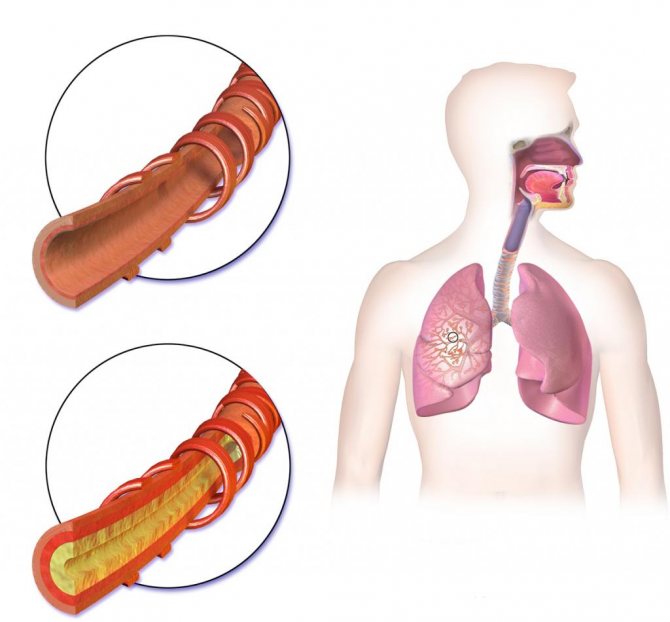
In case of cystic fibrosis, the drug should also be used for prevention.
Is it possible to drink "ACC" while breastfeeding? In addition to the above, the medication is also used for the treatment of infectious and inflammatory pathological processes of the upper respiratory organs:
- Laryngitis (inflammation of the mucous membranes of the larynx, usually associated with a cold or infectious diseases such as measles, scarlet fever, whooping cough).
- Rhinitis (inflammation syndrome of the nasal mucosa).
- Sinusitis (infectious and inflammatory lesions of the paranasal cavities, usually of allergic, viral, bacterial or fungal origin).
When using effervescent tablets during the treatment of diseases of the respiratory tract and lungs, it is not recommended to use additional medications that suppress cough, since they can aggravate the situation with the excretion of pathological secretions and lead to its accumulation in the bronchi and bronchioles.
Actions at the first sign of a cold
The initial symptoms of a cold in a nursing mother are subject to traditional treatment.
First aid consists of following these recommendations:
- Drink plenty of warm drinks. Tea, plain water, milk are suitable for this;
- Frequently air the room. This will make breathing easier and prevent mass infection of the rest of the household;
- Maintain an optimal level of humidity in the room. This way the nasopharyngeal mucosa will not dry out.
If self-treatment of the initial symptoms does not produce positive results, you should consult a doctor. He will select the safest and most effective medications. Drug therapy should only be carried out under medical supervision. Thanks to this, a woman can protect herself from pneumonia, bronchitis and other serious complications.
ACC is most often prescribed for colds in a nursing mother . This is the most effective medication that is approved for use during lactation all over the world.
Prohibitions
The drug is contraindicated for certain ailments and conditions, since the active substance may have a negative effect. These include:
- Increased sensitivity to acetylcysteine or any other additional component of the drug, which can result in a significant deterioration in health.
- Malabsorption syndrome.
- Bleeding from the respiratory tract of varying intensity, including hemoptysis.
- Ulcerative lesions of the stomach or duodenum during an exacerbation - acetylcysteine can cause an increase in the severity of damage to the mucous membrane in this pathological process.
- Interesting situation.
- Lactation.
In case of an interesting situation and lactation, it is forbidden to use the drug, since there is no information on the safety of acetylcysteine for the unborn baby and newborn, so it is advisable not to use it.

Mode of application
Although breastfeeding and pregnancy are listed as contraindications, the drug is still prescribed by doctors. Is it possible to “ACC” while breastfeeding? The drug is considered the most effective method for eliminating colds.
Its degree of negative impact on the body of a woman and a newborn is reduced to a minimum. During lactation, the drug is used strictly according to the doctor’s recommendations.
Doctors recommend taking “ACC” in the following dosages to quickly remove pathological secretions during breastfeeding:
- Twice a day, 200 milligrams of medication.
- "ACC Long" (extended-release tablets) are taken once a day - 600 mg.
Is it possible to drink "ACC" while breastfeeding? During drug therapy for colds or other respiratory illnesses, you can continue to feed the child.
The main feature of using “ACC” during lactation is that it is better and safer to use the medicine immediately after the baby has eaten. By the next feeding of the baby, the content of the active substance in the woman’s breast milk and blood will decrease.
When breastfeeding, "ACC Long" can be consumed in any of the dosage forms. This has no effect on effectiveness or safety.
"ACC Long" is also produced in tablet form. The drug must be dissolved in water. The granules are used to make medicinal syrup. In addition, it is not prohibited to consume powder.
Admission rules
The medicine is prescribed and monitored by a doctor only. He will select the appropriate drug, select the dosage and course of treatment.
!!! Never self-medicate. Sometimes pneumonia is hidden under the symptoms of cough!!!
In pregnant and lactating women, respiratory failure, as a complication of pneumonia, develops quickly and rapidly. Therefore, if your cough is accompanied by fever, difficulty breathing, or shortness of breath, seek medical attention immediately.

Effervescent tablets should be dissolved in one glass of water and taken immediately after dissolution.
ACC powder is diluted with water and drunk after meals.
The finished syrup is taken in the prescribed dosage also after meals. The course of therapy is no more than 6 days.
Intravenous and intramuscular administration is carried out by a medical worker in a hospital.
It is worth noting that the mucolytic effect of the drug is enhanced by taking additional fluid.
What reactions can the medication cause?
According to the instructions for use, "ACC" during breastfeeding is usually well tolerated. When taken orally in the form of a solution, a number of negative reactions may occur, which include:
- Migraine.
- Arterial hypotension (a disease characterized by the fact that a person constantly experiences low blood pressure).
- Nausea.
- Vomiting.
- Heartburn.
- Diarrhea.
- Itching.
- Urticaria (an allergic disease that is manifested by the formation of blisters on the surface of the skin and mucous membranes).
According to reviews of "ACC", when breastfeeding a child, the drug in rare situations can cause negative reactions from the bronchi in the form of spasms, which resemble an attack of bronchial asthma. In extremely severe cases of allergy, anaphylactic shock occurs with the appearance of multiple organ failure with a progressive decrease in total blood pressure.
If side effects occur, you should stop using the drug and seek medical help.
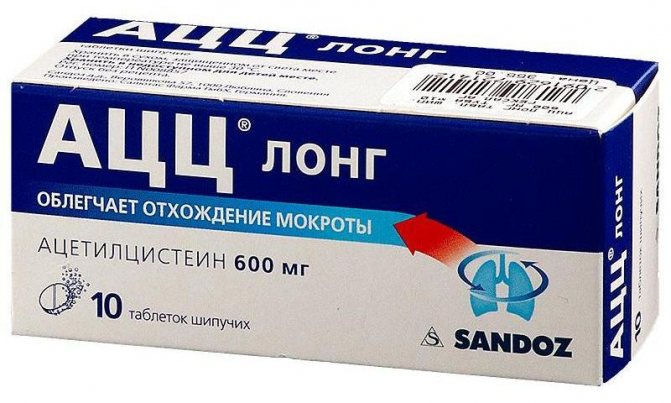
Contraindications and side effects
Like the vast majority of drugs, ACC has a number of contraindications and adverse reactions.
When should you not take it?
ACC is available in several dosage forms - effervescent tablets, granules and syrups. And contraindications may vary, but the following is typical for absolutely any form:
- hypersensitivity to acetylcysteine and auxiliary components (citric acid, ascorbic acid, mannitol, etc.);
- ulcers in the gastrointestinal tract;
- hemorrhages in the lungs;
- pregnancy.
If these are effervescent tablets, then add:
- lactose intolerance, histamine;
- kidney and liver disease;
- high blood pressure;
- dilation of the vessels of the esophagus.
In case of granules:
- fructose intolerance;
- sucrose deficiency.
On a note. The syrup has the same additional contraindications as the tablets.
Negative effects on the body
Adverse events include:
- Allergic reactions (skin itching, urticaria, rash, decreased blood pressure).
- From the gastrointestinal tract (abdominal pain, diarrhea, dyspepsia (except for syrup), nausea, vomiting).
- From the respiratory system (shortness of breath, bronchospasm).
- Tinnitus may occur, but is extremely rare.
- Headache, fever, bleeding - isolated cases have been recorded.
In general, adverse reactions are possible, but not common.
special instructions
According to reviews of “ACC”, during breastfeeding, to eliminate respiratory diseases, it should be taken after carefully reading the instructions. In addition, it is important to pay attention to the following special instructions:
- When a medication is combined with antimicrobial agents, the active substance can block their absorption into the blood from the stomach and intestines. Therefore, the use of these medications should be carried out at intervals of several hours.
- The active component increases the vasodilatory effect of nitroglycerin, which should be taken into account when taking it.
- For young patients under the age of two years, the medication can only be prescribed by a doctor if there are serious indications; the dosage is set on an individual basis.
- Along with the use of effervescent tablets in the form of a solution, it is necessary to increase the amount of liquid to better dilute the mucus.
- For patients suffering from atopic allergic bronchitis and bronchial asthma, the drug is prescribed with extreme caution, under control of the airway.
- Effervescent tablets "ACC" contain carbohydrates, which must be taken into account by patients with diabetes.
- The drug may only be dissolved in glass containers.
- The active substance "ACC" does not affect attention and the speed of psychomotor reactions in any way.
In pharmacies, effervescent tablets are sold without a prescription from a medical specialist. If you have any doubts or questions regarding their use, you should consult your doctor.
If the pharmacological dosage of the drug is significantly exceeded, signs of its negative reactions from the digestive organs and the central nervous system may appear. In case of poisoning, it is necessary to lavage the stomach and intestines and carry out general detoxification measures with symptomatic treatment.
Substitutes
If you use ACC with other antitussive drugs at the same time, this can lead to stagnation of pathological secretions. Therefore, this mucolytic drug cannot be combined with drugs that have similar effects.
How to replace “ACC” when breastfeeding? To eliminate cough during lactation, you can use tablets, as well as syrups, sprays and herbs. For example, tablets:
- “Mukaltin” is a herbal preparation, namely from the extract of the marshmallow herb. It is produced in tablet form and has a pronounced mucolytic effect. The advantages include fewer adverse reactions compared to ACC. It can also be used together with other antitussive medications.
- "Ambrobene", "Ambroxol" and other drugs that contain ambroxol as an active ingredient are approved for use. This is due to the fact that this substance does not pass into the mother’s breast milk and, accordingly, into the child’s body.
- Hexoral spray works well against pathogens in the throat, thereby preventing the progression of the disease and promoting instant recovery.
- "Tantum Verde", as a rule, is absolutely harmless to use. And it must be applied every two hours.
Syrups are also analogues of "ACC". The main requirements for cough syrups during breastfeeding are the presence of natural ingredients in the composition. For example:
- "Gerbion" contains plantain and mallow extract.
- "Gedelix" is based on ivy extract.
Women who are breastfeeding and are afraid of harming their baby prefer decoctions made from plant materials:
- chamomile;
- rose hip;
- various breast charges.
It must be remembered that it is not recommended to get carried away with this method of therapy, since products made from herbal raw materials do not undergo any safety tests.
If the patient has a wet cough, then this is a symptom of a speedy recovery. And for easier discharge of pathological secretions, mucolytic drugs are recommended.
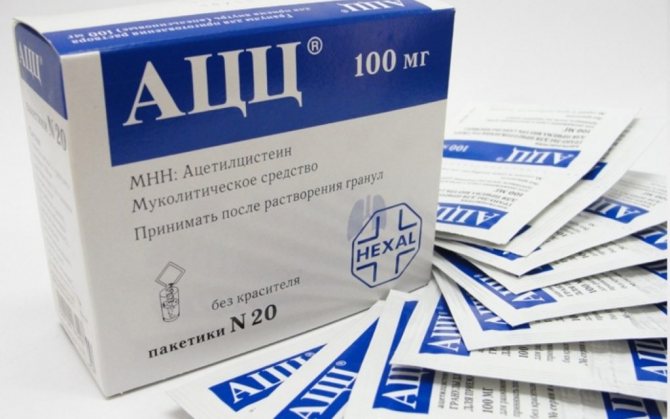
Is it possible to drink during breastfeeding?
Reference. This drug has been rated Category B by the FDA (Food and Drug Administration). This means that the drug was not found to have a risk of adverse effects on the fetus when studied in pregnant animals.
But no studies have been conducted in pregnant women. Therefore, taking ACC is allowed only if the benefit to the mother outweighs the risk of negative effects on the fetus. And during the entire course of treatment it is necessary to stop breastfeeding.
